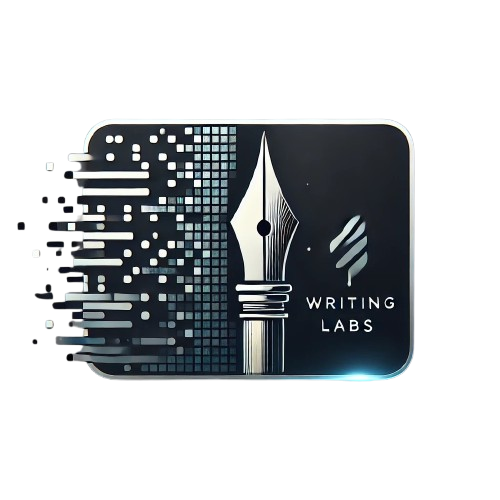
Introduction
Artificial intelligence has permeated various sectors, with writing being one of the most impacted. AI tools are now capable of generating essays, articles, and even creative pieces, challenging the traditional processes of content creation. These technologies utilize complex algorithms to produce coherent and, at times, persuasive text, making them attractive to individuals seeking quick and effortless writing solutions. The controversial decisions made by OpenAI over the years demonstrate this.https://rogerwilcoai.com/openais-controversial-decisions-a-timeline/
The Mechanics of AI Writing Tools
AI writing tools operate using advanced machine learning algorithms that analyze vast amounts of text data. These algorithms learn from patterns within the data, enabling the AI to mimic human writing styles and produce text that appears natural. Despite their sophistication, these tools are limited by the quality and scope of their training data, which can affect the accuracy and relevance of the content they generate.
The Appeal of AI-Generated Content
AI’s ability to swiftly produce content is undeniably appealing, particularly in academic settings where students are often pressed for time. The allure of AI lies in its promise of efficiency and productivity, offering a seemingly easy solution for meeting deadlines. However, the convenience of AI-generated content can lead to a reliance that undermines the development of critical thinking and writing skills. This raises significant concerns about academic integrity and the potential for misconduct.
The Limitations of AI in Capturing Nuance
While AI can generate text that is technically sound, it often struggles to capture the subtleties of human expression and emotion. The lack of a genuine understanding of context can result in content that is flat or generic, lacking the depth and personal touch that characterizes compelling writing. This limitation highlights the importance of human oversight in the writing process to ensure that the final output is both engaging and meaningful.
AI Academic Misconduct and Risks

The use of AI in academic writing introduces a spectrum of risks, notably academic misconduct. AI tools can generate essays that are indistinguishable from those written by humans, posing challenges for educators in identifying original work. This capability has sparked debates over the ethical implications of AI in academia, with critics arguing that it facilitates plagiarism and diminishes the value of authentic scholarly effort.
Identifying AI-Generated Work
Educators face significant hurdles in differentiating AI-generated work from human-authored content. Advanced AI can produce text that passes plagiarism checks, complicating the task of verifying originality. Institutions are now exploring new methods and tools to detect AI-generated content, emphasizing the need for innovative solutions to uphold academic standards.
Ethical Considerations in AI Usage
The integration of AI in academic settings raises ethical questions about authorship and intellectual property. Students may be tempted to pass off AI-generated essays as their own, blurring the lines between assistance and dishonesty. This ethical dilemma underscores the importance of clear guidelines and education on the responsible use of AI tools in writing.
The Role of Educators in Combating Misconduct
Educators play a crucial role in mitigating the risks associated with AI in academic writing. By fostering an environment that prioritizes originality and critical thinking, educators can help students understand the value of developing their skills. Incorporating discussions on AI ethics and encouraging students to engage with writing as a creative process can reduce the temptation to rely solely on AI-generated solutions.
The Dangers of AI Essays
AI-generated essays, while innovative, come with inherent dangers. The lack of human oversight can result in content that lacks depth, context, and critical analysis. Essays produced by AI often miss the nuanced understanding that human writers bring to their work, leading to superficial and potentially misleading conclusions. These shortcomings underscore the importance of maintaining human involvement in the writing process to ensure quality and accuracy.
The Pitfalls of Over-reliance on AI
Relying excessively on AI for essay writing can lead to a decline in essential writing skills among students and professionals. The ease of generating content with AI may discourage individuals from engaging deeply with their subject matter, stunting intellectual growth and critical analysis. This over-reliance can compromise the development of a writer’s voice and perspective, which are crucial for effective communication.
Ensuring Quality and Depth in Writing
To address the deficiencies in AI-generated essays, human intervention is necessary to ensure quality and depth. Human writers bring an understanding of context and audience that AI lacks, allowing them to tailor content to specific needs and expectations. This human touch is vital for producing essays that are not only informative but also resonate with readers on a deeper level.
The Importance of Contextual Understanding
AI-generated essays often lack the contextual understanding that human writers naturally possess. This can result in content that, while grammatically correct, misses the mark in terms of relevance and applicability. Human writers can draw on their experiences and insights to provide contextually rich content that enhances the reader’s understanding and engagement. Because AI alignment is a myth, AI writing cannot mimic human writing.
The Role of Academic AI Policies
Educational institutions are increasingly adopting academic AI policies to address the challenges posed by AI-generated content. These policies aim to define acceptable uses of AI in academic work and establish guidelines to prevent misconduct. However, the enforcement of such policies requires continuous adaptation to keep pace with technological advancements and ensure that students understand the ethical boundaries of AI usage.
Developing Comprehensive AI Guidelines
Creating effective regulatory AI policies involves a collaborative effort between educators, administrators, and technology experts. These guidelines must be comprehensive, covering various aspects of AI usage, from research to writing assistance. By clearly defining acceptable practices, institutions can provide students with a framework for ethical AI use, reducing the risk of misconduct.
Educating Students on AI Ethics
Education plays a vital role in ensuring that students use AI tools responsibly. By integrating discussions on AI ethics into the curriculum, educators can equip students with the knowledge to make informed decisions about AI usage. This proactive approach can foster a culture of integrity and accountability in academic writing.
Keeping Pace with Technological Advancements
As AI technology continues to evolve, academic policies must be regularly updated to reflect new capabilities and challenges. Institutions need to stay informed about the latest developments in AI to ensure their policies remain relevant and effective. This ongoing adaptation is crucial for maintaining the integrity of academic work in an increasingly digital landscape.
Why Ghostwriters Are Essential

In this context, ghostwriters emerge as crucial players in maintaining the quality and integrity of written content. Ghostwriting services provide a human touch that AI cannot replicate, offering depth, creativity, and personalized insights that enrich the writing process. Ghostwriters are adept at crafting content that resonates with the intended audience, ensuring that the message is conveyed effectively and authentically.
The Human Element in Writing
Ghostwriters bring a unique human element to writing that AI lacks. They possess the ability to comprehend complex ideas, capture the essence of a narrative, and engage readers on a personal level. This human touch is essential for producing content that is not only informative but also emotionally resonant, a quality that AI-generated text often fails to achieve.
Addressing AI Essay Risks with Ghostwriting
By employing ghostwriters, individuals and organizations can mitigate the risks associated with AI-generated content. Ghostwriters ensure that the final product is original, well-researched, and free from the pitfalls of AI-generated text. Their expertise in crafting compelling narratives and presenting nuanced arguments is invaluable in preserving the integrity of written work, particularly in academic and professional settings.
The Versatility of Ghostwriting Services
Ghostwriting services offer a wide range of benefits beyond merely producing content. They can assist with editing and refining AI-generated drafts, providing a critical eye to enhance clarity and coherence. This versatility ensures that the final product meets the highest standards of quality and accuracy, aligning with the client’s goals and expectations.
The Future of Ghostwriting and AI
As AI continues to evolve, the relationship between AI and ghostwriting is likely to become more intertwined. Ghostwriters may increasingly leverage AI tools to enhance their work, using technology to streamline research and improve efficiency while maintaining the creative and analytical aspects of writing that only humans can provide. This symbiotic relationship has the potential to redefine the landscape of writing, blending the best of both worlds to produce superior content.
The Evolution of Collaborative Writing
The future of writing lies in the collaboration between AI and human creativity. Ghostwriters can harness the power of AI for data collection and preliminary drafting, allowing them to focus on the creative and strategic aspects of writing. This partnership can lead to more efficient workflows and innovative content solutions, setting new standards for writing excellence.
Balancing Innovation with Integrity
While AI offers remarkable capabilities in writing assistance, the role of ghostwriters remains critical in preserving the quality and authenticity of written content. The balance between AI innovation and human oversight is essential to ensure that content remains insightful and original. As AI technologies advance, the collaboration between AI and ghostwriters will be essential in shaping the future of writing, balancing innovation with integrity.
Preparing for an AI-Enhanced Writing Future
As the writing industry adapts to new technologies, ghostwriters must be prepared to embrace AI advancements. By staying informed about AI developments and continually honing their skills, ghostwriters can maintain their relevance and value in the digital age. This proactive approach will enable them to harness the full potential of AI, ensuring that the future of writing is both innovative and meaningful.
Conclusion
In conclusion, while AI offers remarkable capabilities in writing assistance, the role of top ghostwriters remains critical in preserving the quality and authenticity of written content. Ghostwriting services provide the human touch necessary to navigate the complexities of language and expression, ensuring that the final product is both insightful and original. As AI technologies advance, the collaboration between AI and ghostwriters will be essential in shaping the future of writing, balancing innovation with integrity. Ultimately, ghostwriters remain critical in the age of AI.

